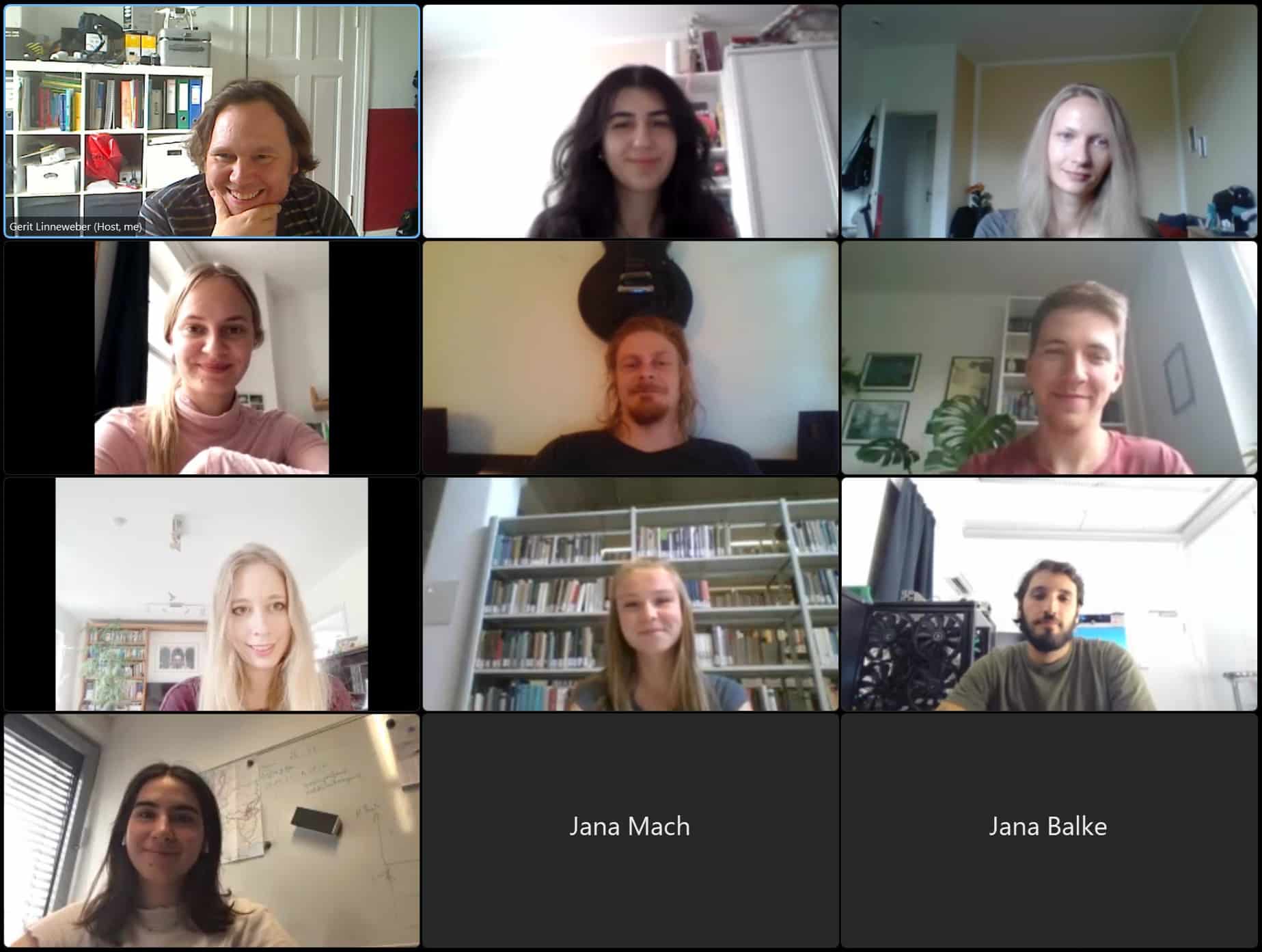
About us
Who we are
The Linneweber Lab research team is a team of scientists led by DFG Emmy Noether Group leader Gerit Linneweber. We aim to understand the origins of individual variation using an invertebrate model organism. The fruit fly Drosophila melanogaster.
Our lab, the Linneweber Lab research team was founded nearly two years ago with the help of the generous funding of the DFG Emmy Noether Programme. Since then, the Linneweber Lab research team has continuously grown and strived to become one of the leading laboratories in the world investigating individual behavioral variability using invertebrate model organisms.
We have now expanded the scope of our work toward numerous visual and non-visual behaviors and circuit-wide methods. Soon we plan to establish physiological approaches to investigate variability in brain computations.
Linneweber lab in 2024
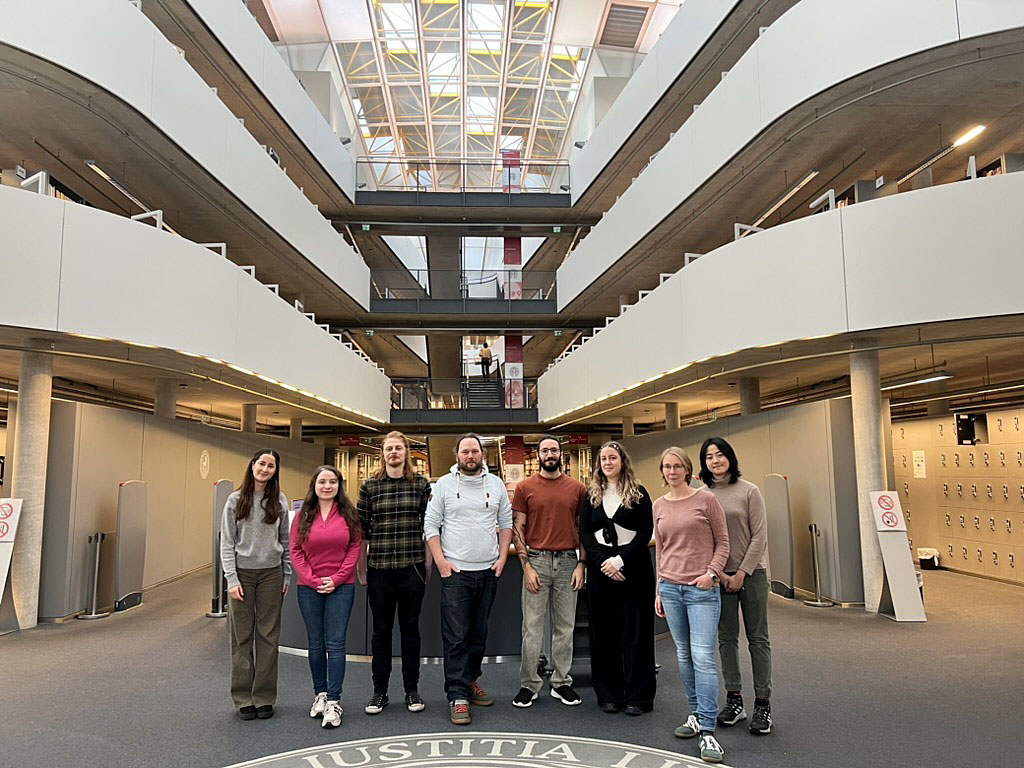
Linneweber lab in 2023
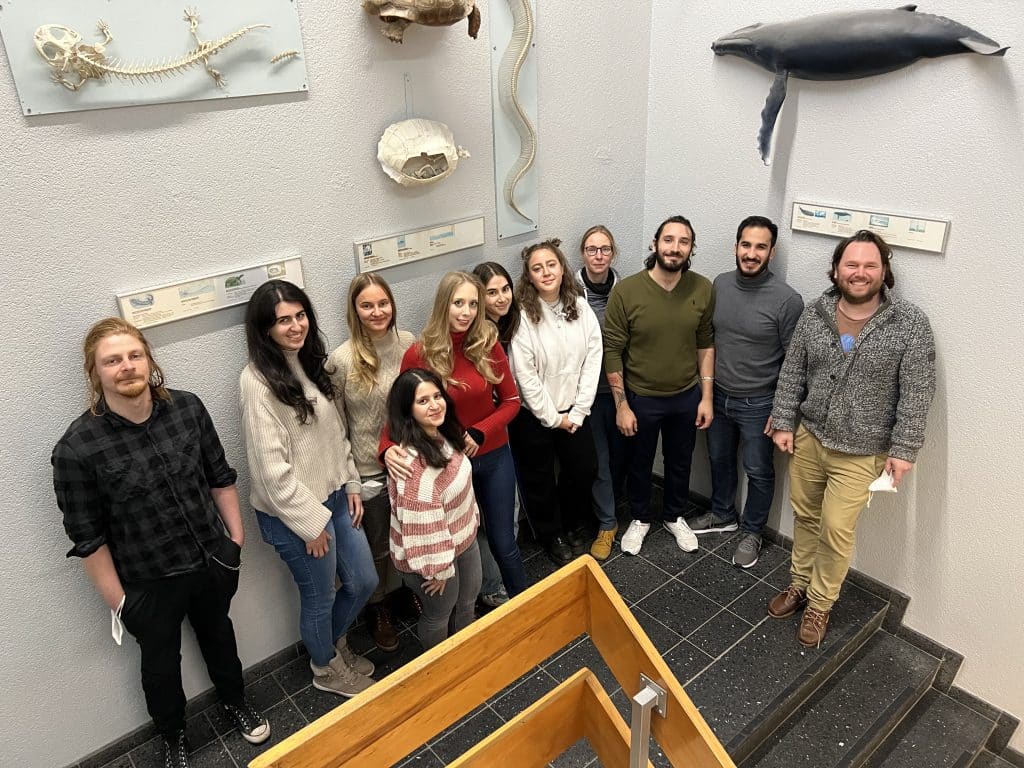
Linneweber lab in 2022
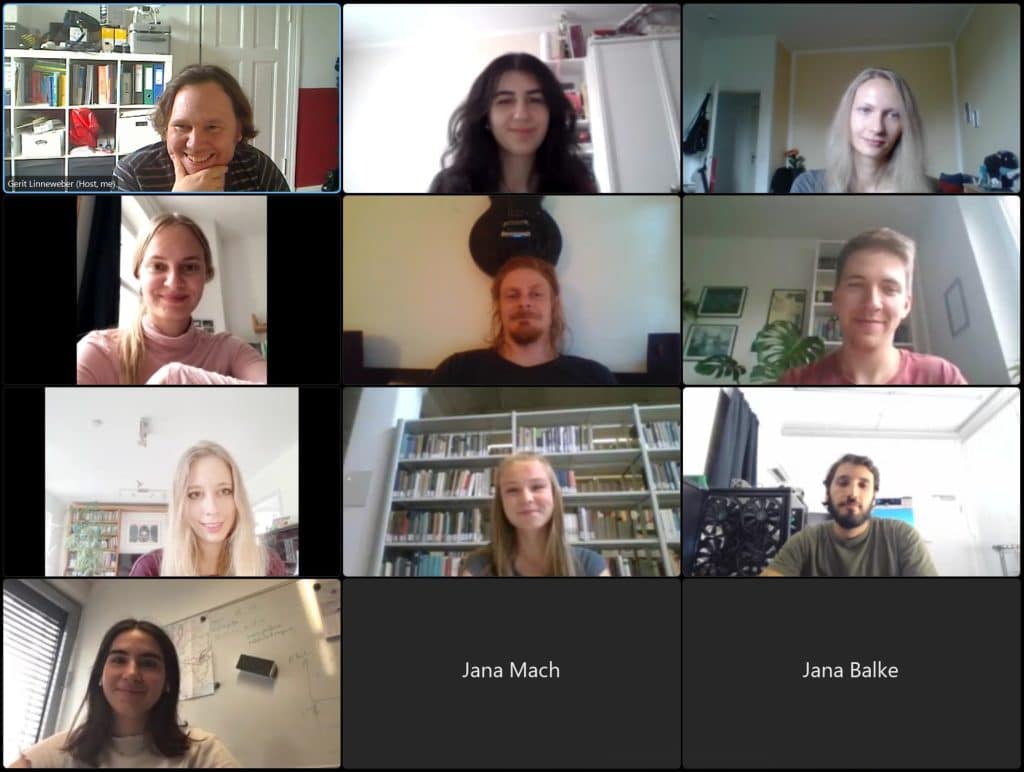
Linneweber lab in 2021
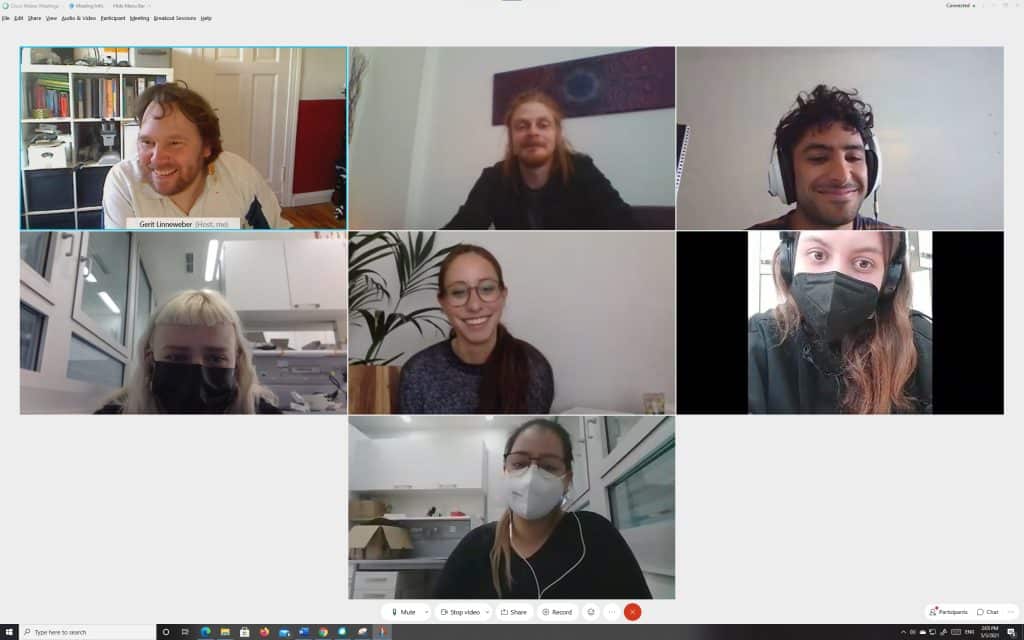
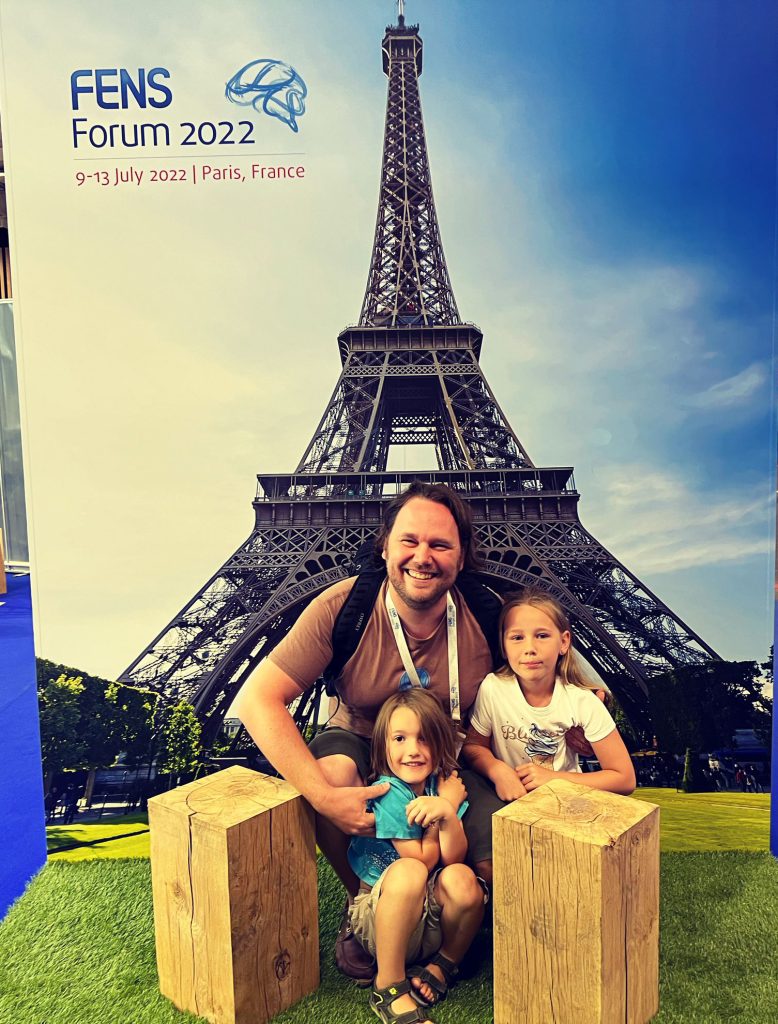
Emmy Noether Group Leader Dr. Gerit Linneweber
Gerit received his Ph.D. from the University of Cambridge, where he worked under the supervision of Irene Miguel-Aliaga on interactions between the nervous and digestive systems. Next, he moved to Belgium to work with Bassem Hassan on the developmental origins of behavioral individuality. An EMBO and Marie Curie Fellowship supported Gerit for this work. In 2017, Gerit moved to Berlin and became a DFG Emmy Noether Group Leader in 2021. Read his Full CV.
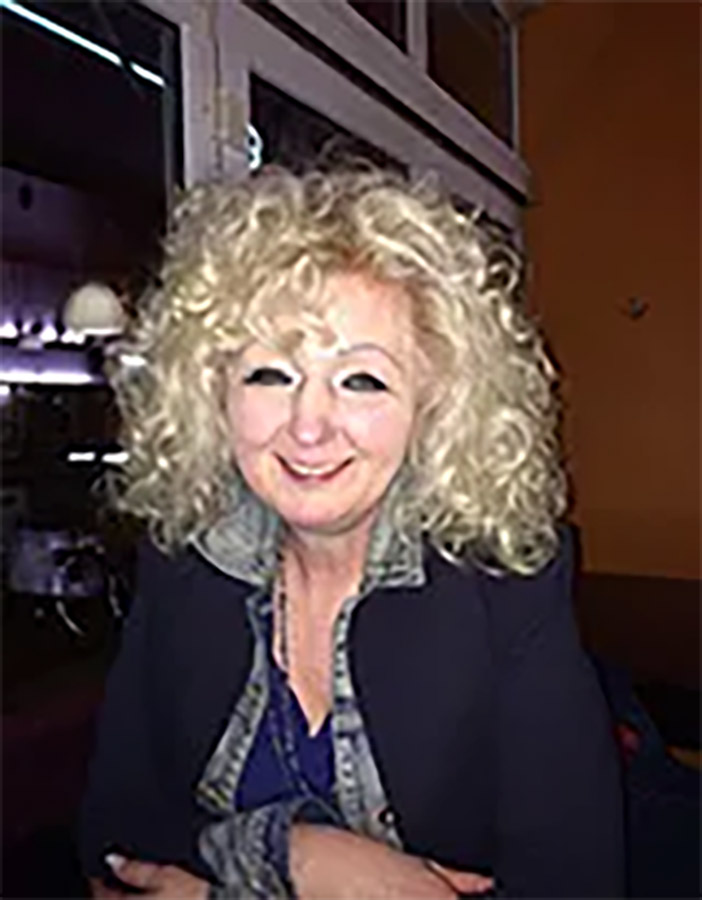
Administration Ute Gebhardt
Ute is the Administrative Associate for Prof. Dr. Hiesinger. Ute guides us through all administrative issues at Freie Universität Berlin.
Ute can be reached by phone: +49 30 838 55917.
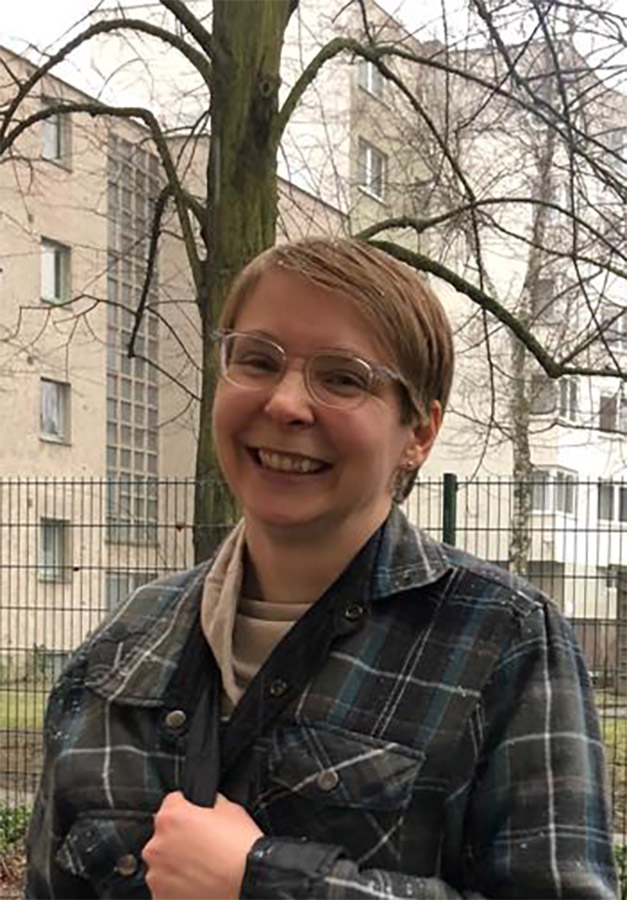
Technical Assistance Jana Balke
Jana began her career as a physiotherapist in Lahr. In April 2005, Jana moved to Berlin. In Berlin, she provided physiotherapy services for the B-junior football team of Tennis Borussia Berlin. In 2010, Jana decided to pursue higher education. After a few steps in between, she enrolled at the Freie Universität Berlin, where she earned a Bachelor’s degree in Biology in 2017. and a Master degree in Biology in 2019. Jana performed her Bachelor and Master thesis work under supervision of Prof. Dr. Mathias Wernet next door to us. In September 2021, Jana joined the lab as a technical assistant.
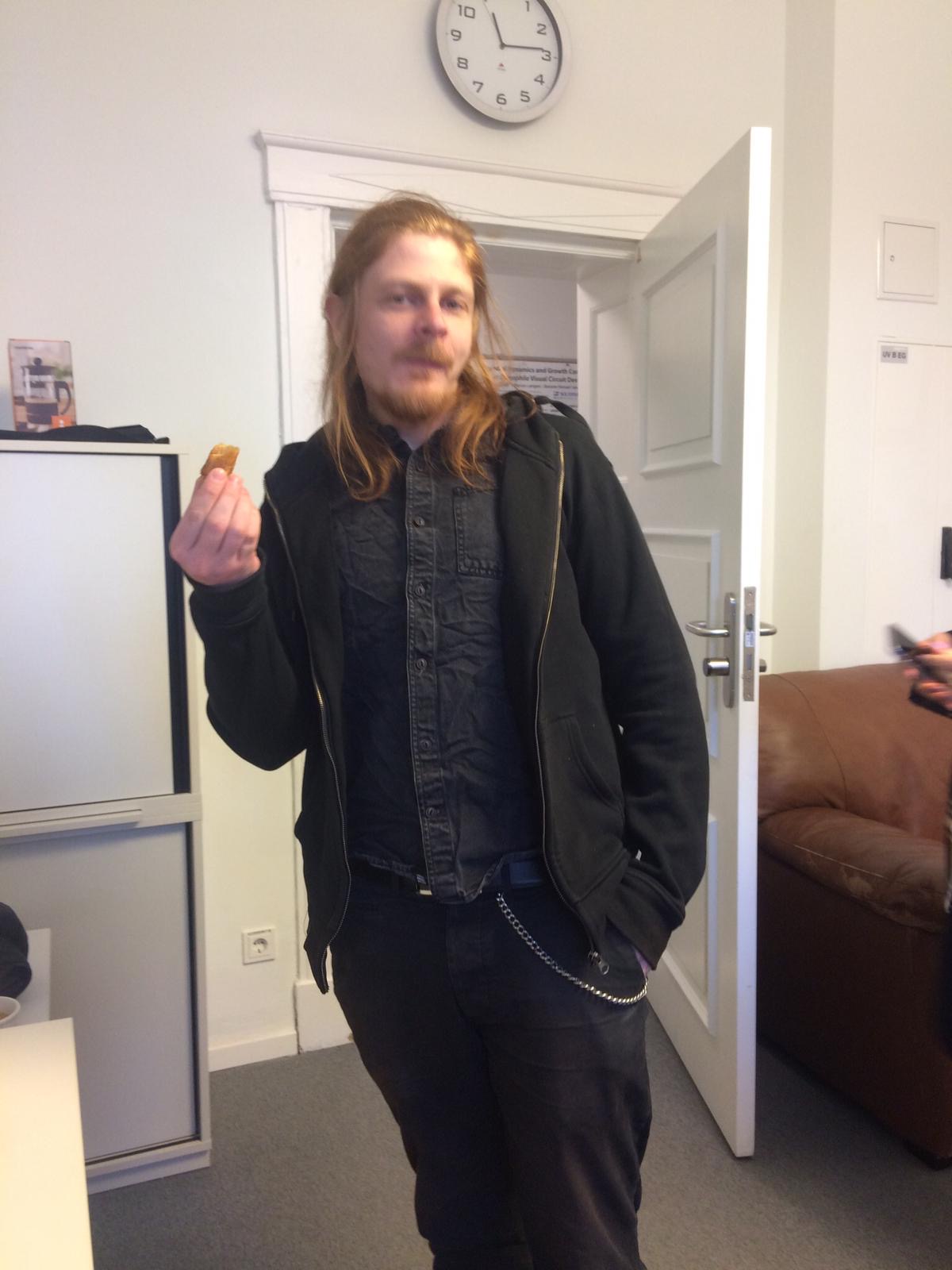
Postdoc Thomas Mathejczyk
Thomas is an experienced biologist with specialization in neurobiology and behavior. His expertise spans a wide range of areas, including experimental design, scientific programming, and advanced image analysis, as well as the automation of research workflows. Thomas pursued a Bachelor of Science in Biology at the Freie Universität Berlin from 2010 to 2013 and a Master of Science in Biology between 2014 and 2016. From 2016 to 2021, Thomas completed his Ph.D. in Neurobiology , working under the supervision of Prof. Dr. Marthias Wernet. His doctoral research focused on the visual systems of Drosophila, specifically how neural circuits process visual information to guide orientation and decision-making. Since completing his PhD, Thomas has joined the lab as a Postdoctoral Researcher, where he explores individual behavioral differences in Drosophila.
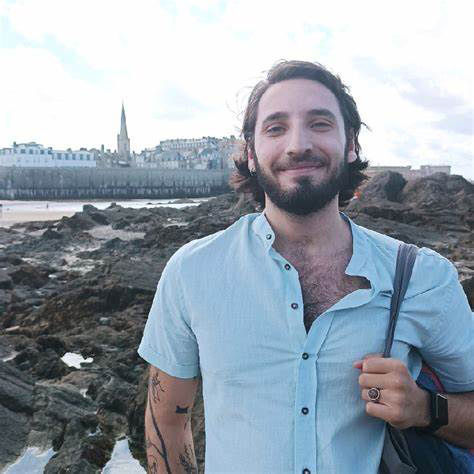
PhD Student Muhammad Ali Haidar
Muhammad is a biomedical scientist specializing in biochemistry and molecular genetics. He holds an MSc from the American University of Beirut and a BSc in Medical Laboratory Sciences from the University of Balamand. Before joining the Linneweber Lab in 2022, he worked as a Molecular Technologist at the Lebanese University, focusing on RNA extraction, RT-qPCR, and SARS-CoV-2 testing. Afterwards, he worked as a Research Associate in the lab of Firas Kobeissy at the American University of Beirut, where he investigated neurotherapies and conducts behavioral tests on mouse models. In the Linneweber Lab he investigates the origins of circadian individuality.
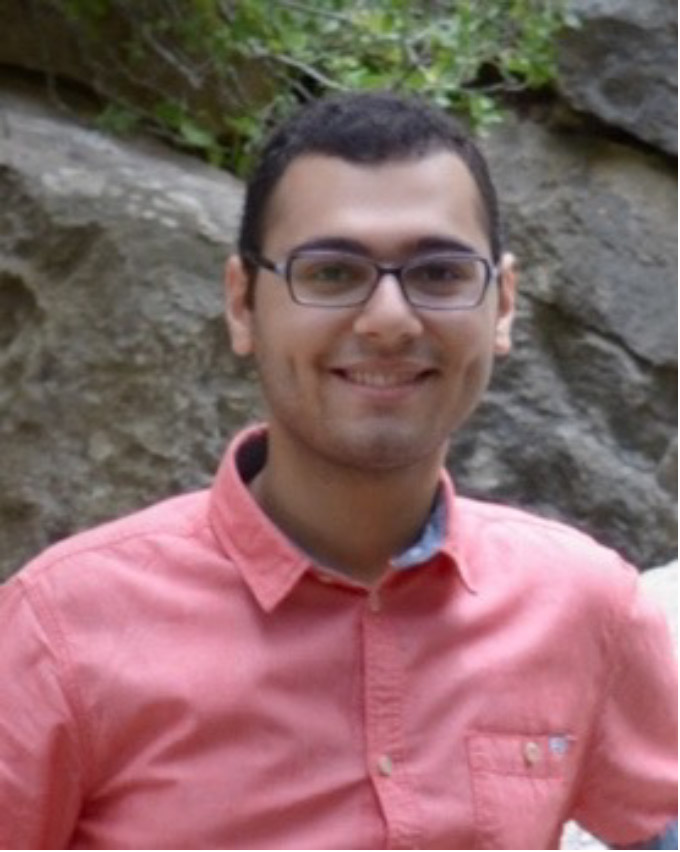
PhD Student Mohammad Reslan
Mohammad is a neuroscience researcher with a Master’s degree from the Lebanese University. Before joining the Linneweber Lab in 2022, he was a Senior Research Assistant at the American University of Beirut, specializing in studying the effects of Mitoquinone supplementation on cognitive impairments and traumatic brain injury. With a strong background in molecular and cellular assessments, animal handling, and behavioral testing, Mohammad has contributed to numerous projects and published articles on neurodegeneration and brain health. In addition to his research, Mohammad works as a freelance writing editor and scientific illustrator.
In the Linneweber Lab, he works on quantitative differences in behavior and brain wiring between females and males.
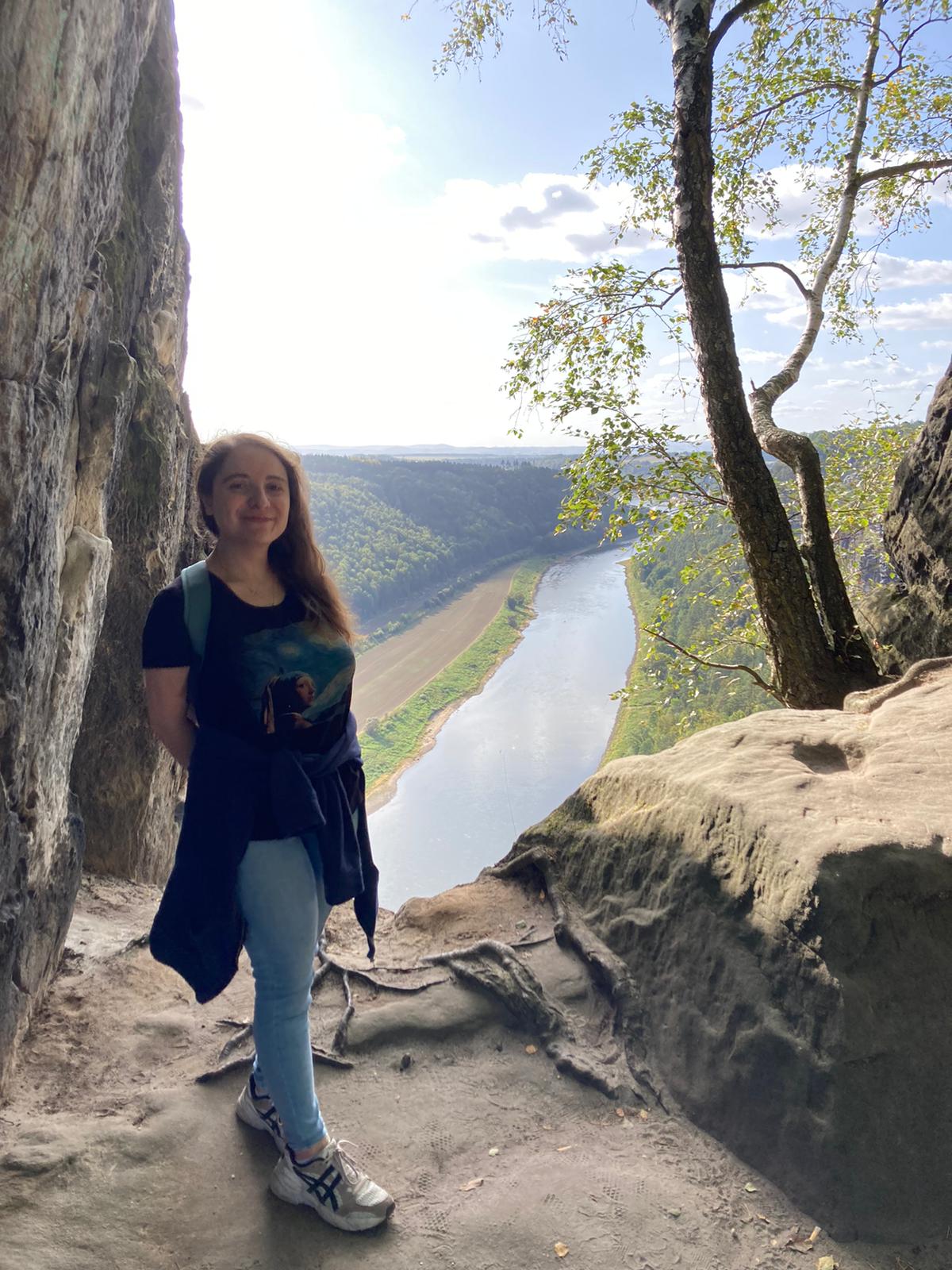
PhD Student Ayse Kahraman
Ayse is an experienced researcher with a multidisciplinary background in molecular biology, genetics, and psychology. She graduated with an MSc. at Bogazici University. She has a strong foundation in experimental design and analysis, particularly in neurobiological and genetic studies using Drosophila melanogaster. Ayse has a track record of working on projects funded by the Scientific and Technological Research Council of Turkey (TUBITAK), and has specialized in genetic manipulation techniques such as CRISPR/Cas, as well as behavioral assays and phenotypical screenings.
Ayse joined the Linneweber Lab research team in June 2023 to investigate the stochastic origins in behavioral individuality..
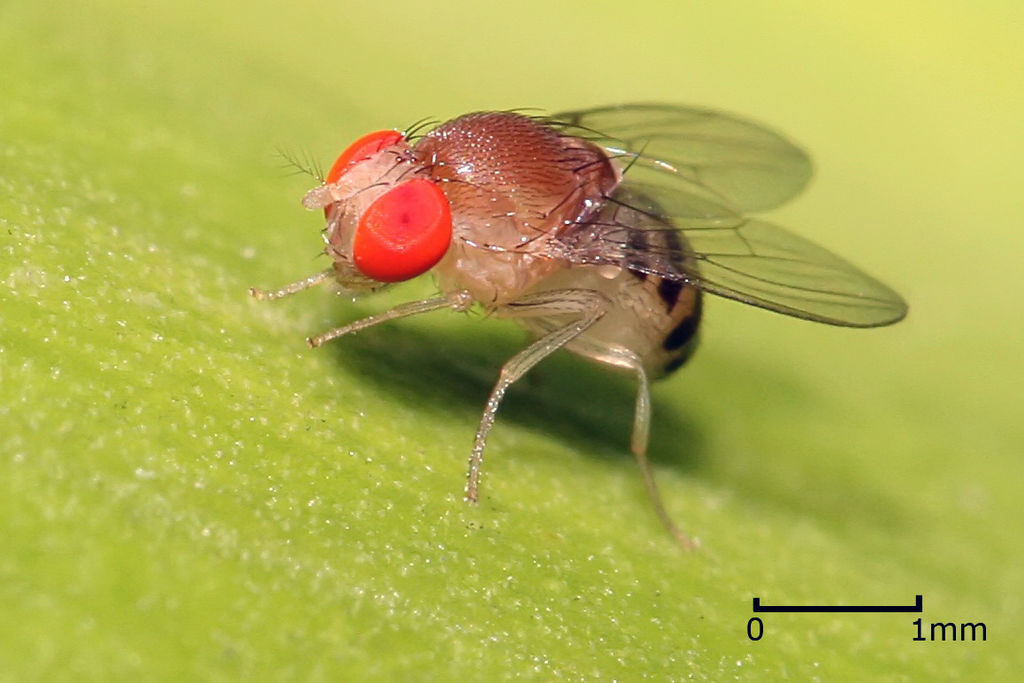
Preferred Model System Drosophila melanogaster
Our model system of choice is the vinegar fly Drosophila melanogaster. Drosophila is a commonly used model organism in genetics and biological research. It has a small genome size, a short generation time, and is dead easy to culture, making it a popular choice for genetic and neurodevelopmental studies. Additionally, many of the genetic and molecular mechanisms that control the development and physiology of fruit flies are similar to those in higher organisms, including humans, making it a valuable model for understanding human biology and disease.
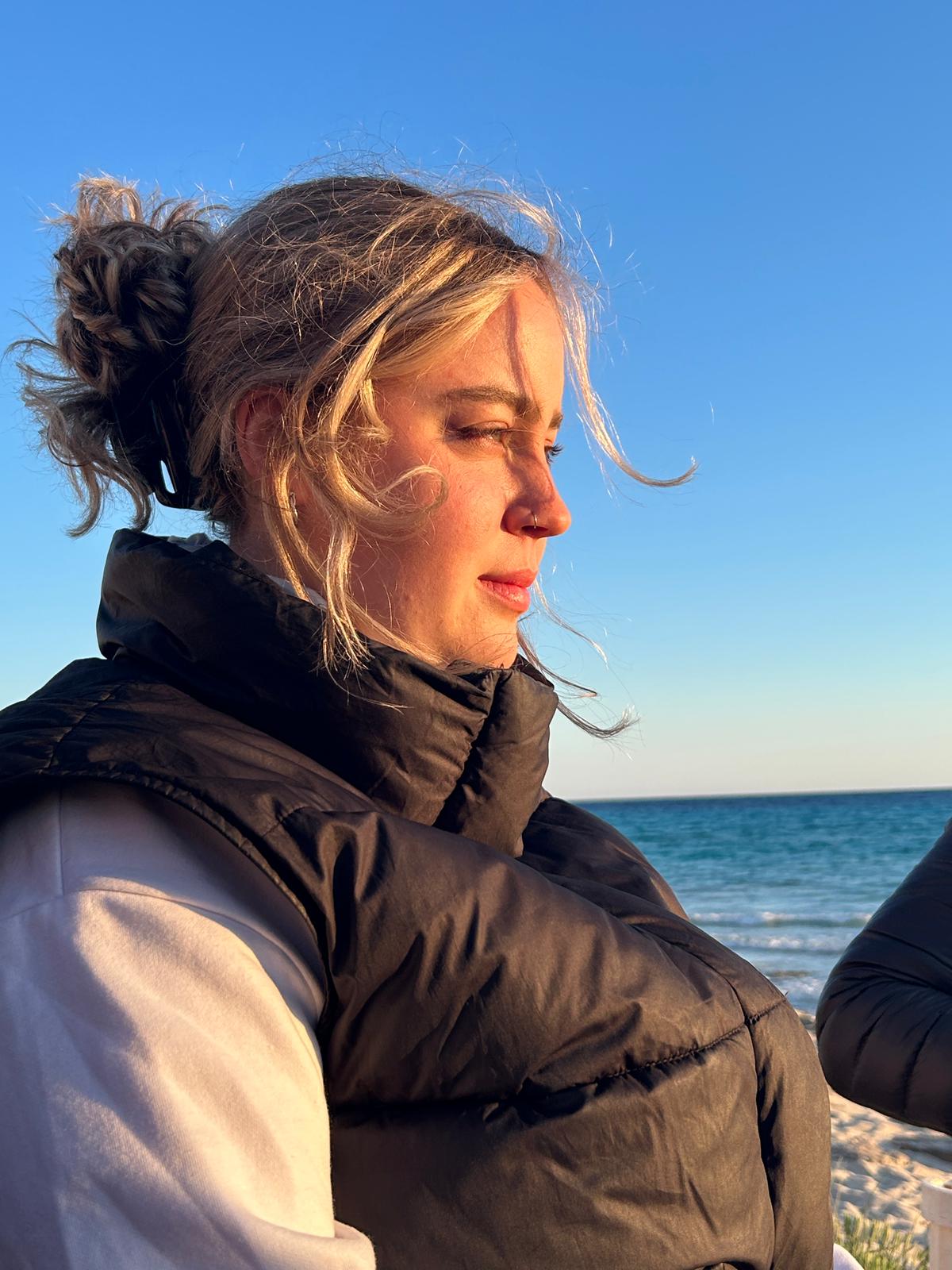
Master student Marlene Wirth
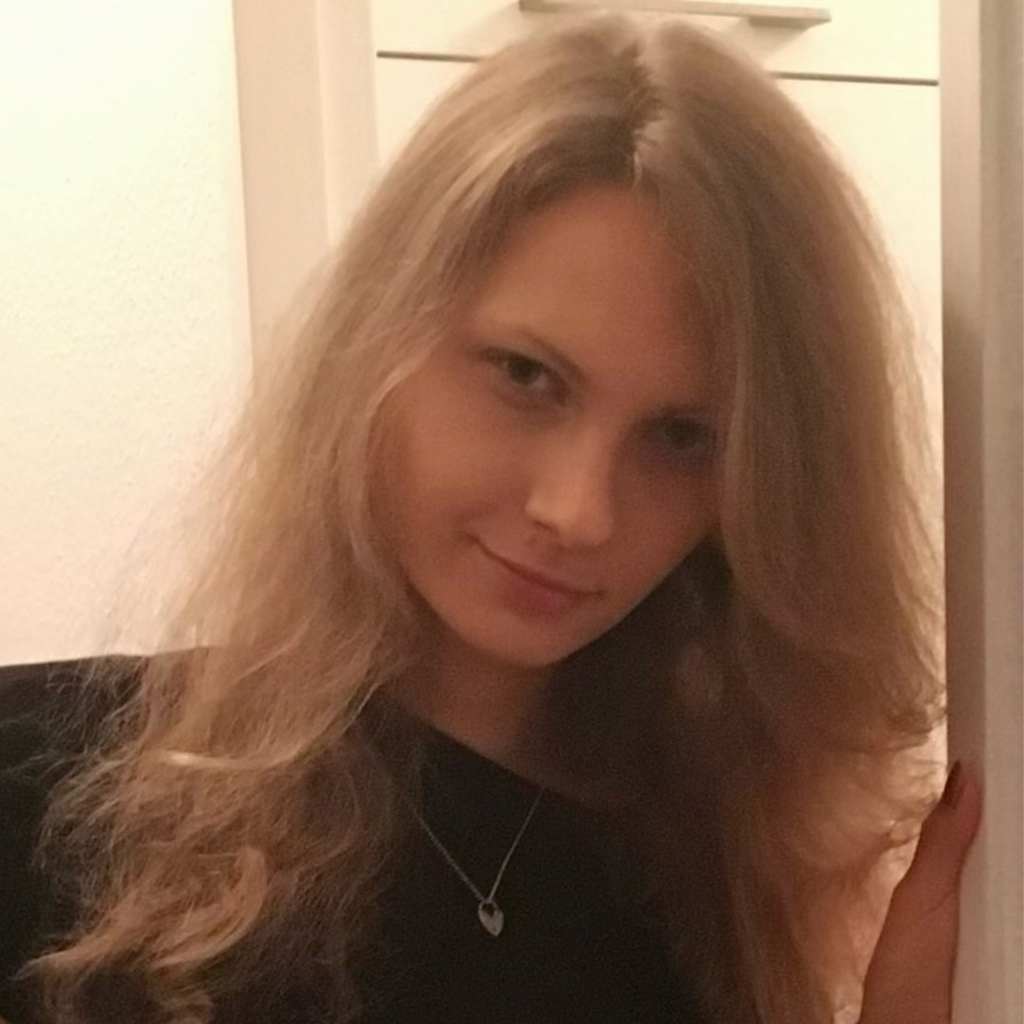
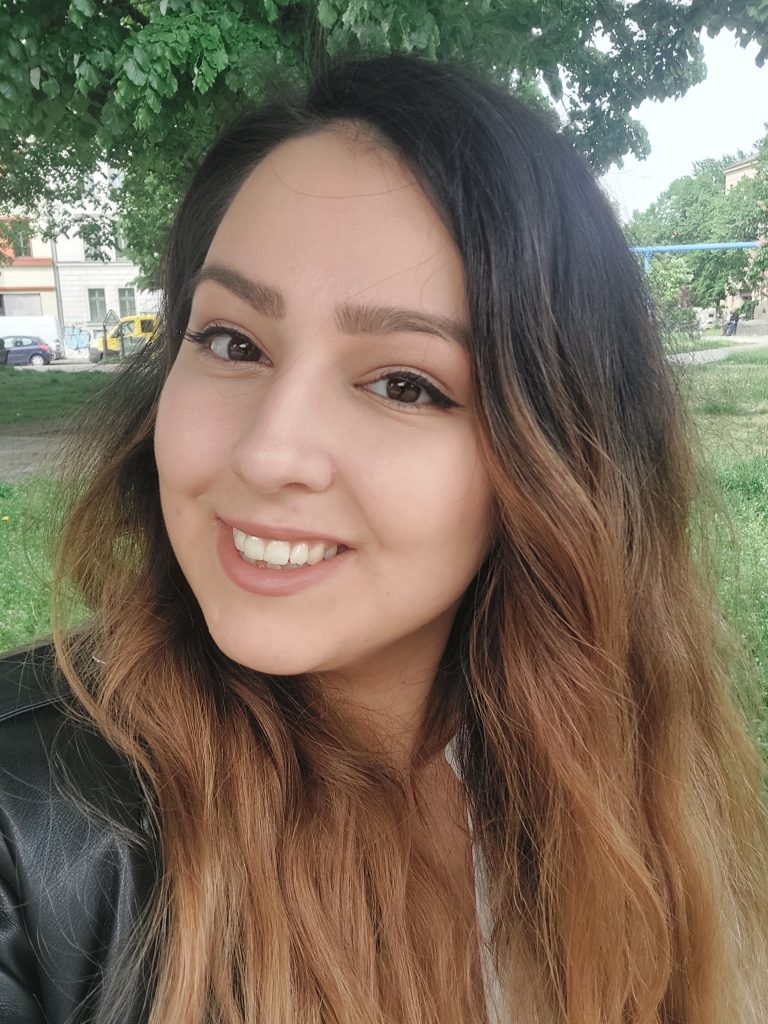
Alumni
- Hussein Hammoud (Lebanese University)
- Matanat Mammadli (FU Berlin)
- Anastasia Gkouliou (University of Ioannina)
- Shirin Kuebler (FU Berlin)
- Katharina Brecht (FU Berlin)
- Samra Hamidovic (FU Berlin)
- Lara Kornblum (FU Berlin)
- Florian Freitag (FU Berlin)
- Klara Bystranova (Charles University – Univerzita Karlova)
- Cara Knief (FU Berlin)
- Aydan Cakir (FU Berlin)
- Arman Jafari (FU Berlin)
- Nikolai Konopka (FU Berlin)
- Laia Pons-Paris (Universitat de Barcelona)
- Tydings McClary (FU Berlin)
Joining us
If you are interested in what you read so far and are thinking of joining us as a postdoc or graduate student or undergraduate student, please get in touch! We are accepting applications all year round. Please send all informal inquiries to Gerit Linneweber.